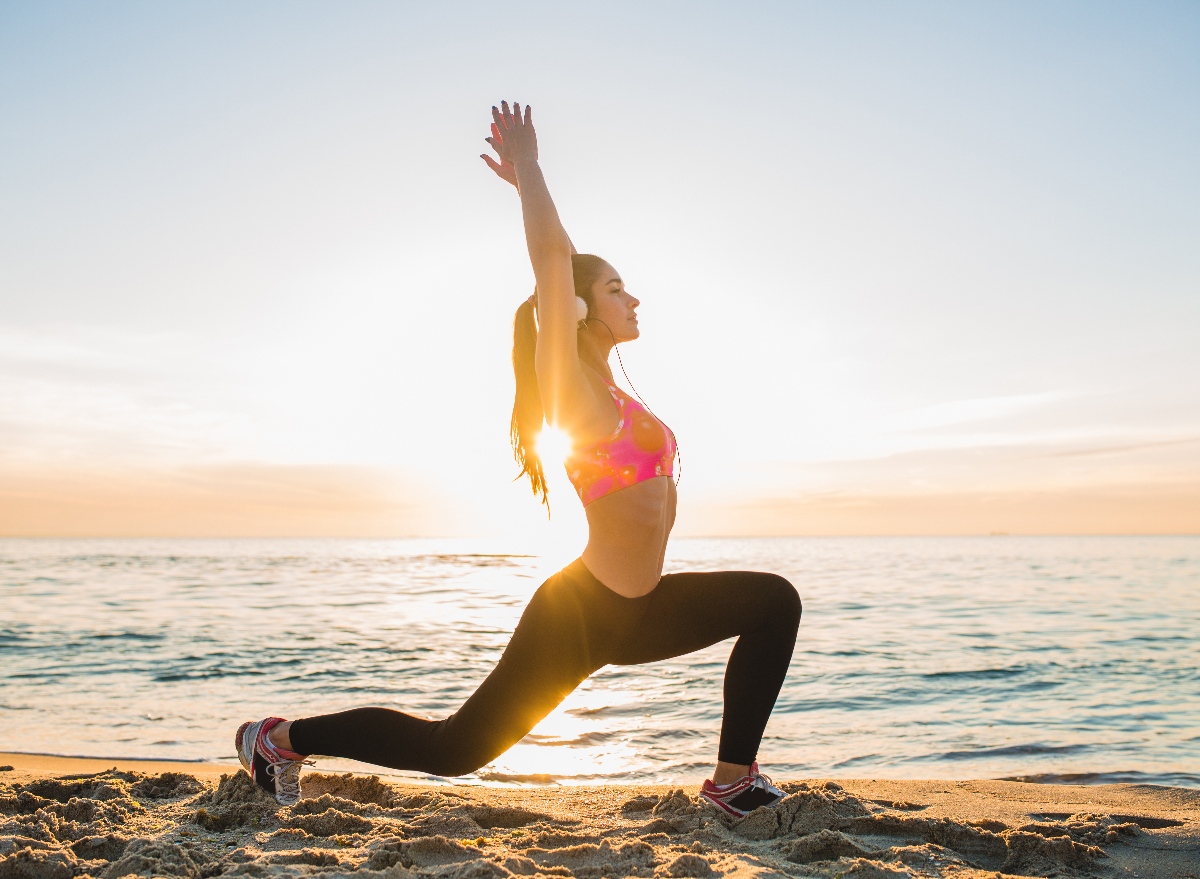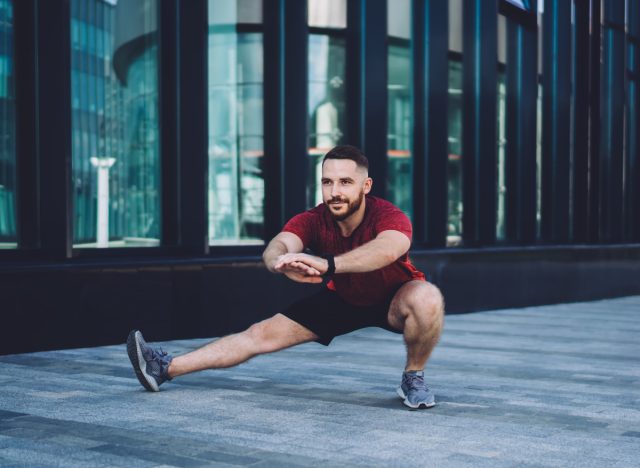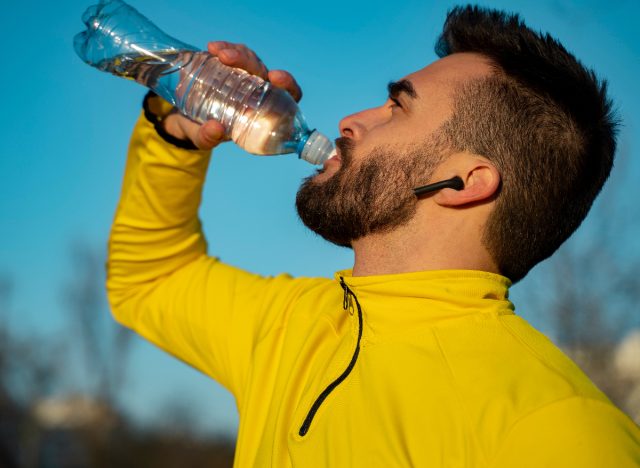Here’s How Much Daily Activity You Really Need to Be “Healthy”

With all the conflicting information we’re bombarded with daily, figuring out how to stay healthy can be downright confusing and frustrating. Plus, what “healthy” looks like really depends on the individual, and it’s always a smart idea to check in with a healthcare professional to determine the best course of action for you. To help sift through the online noise, we asked Kate Meier, CPT, a certified personal trainer with Garage Gym Reviews, to weigh in on how much daily physical activity you need to be healthy. “Your total daily activity can be a combination of moderate and vigorous activity,” states Meier. “Adding strength training to the mix can help with muscle building and overall strength, including bone strength.”
But how much physical activity do you really need to be healthy? According to the Physical Activity Guidelines for Americans, the average adult should get a minimum of 150 minutes (2.5 hours) of moderate-intensity or 75 minutes of vigorous-intensity aerobic exercise per week (or any combination of the two) plus two days of strength training.
If that seems excessive, don’t worry—it doesn’t have to be done all at once. A more effective strategy is to break your exercise time down into manageable chunks. For example, you can spread your physical activity across the week by doing five 30-minute cardio sessions to reach the 150-minute mark. It’s better to be consistent and do some daily activity than to do one giant block of exercise a week. “A consistent workout or activity schedule is best for staying injury-free and optimizing your health,” says Meier.
Keep reading for Meier’s daily tips and recommendations to help you stay healthy, active, and strong for years to come. And when you’re done, check out The 8 Best Exercises for Men to Stay Fit After 50.
Maximize movement.

The importance of daily movement cannot be overstated. According to the Centers for Disease Control and Prevention (CDC), regular physical activity boosts brain health, supports healthy weight management, reduces chronic disease risk, improves bone health, and makes daily activities easier.
“Even if you work out daily, adding movement to the rest of your day is essential—especially if your job is sedentary,” states Meier. “Sitting for long hours can increase the risk of health problems, and building time into your schedule for some standing or walking breaks is an excellent way to mitigate that risk, whether it’s taking the stairs instead of the elevator, walking to get lunch or even mini workouts during the day.”
Focus on mobility work.

“Taking time daily to work on mobility is vital for your overall health and fitness goals,” says Meier. “Mobility work can include countless exercises, some of the simplest being bodyweight squats done with a full range of motion, hip opening exercises such as side lunges, and movements including gentle spine rotation. When executed correctly, most exercises will have some mobility component.”
While maintaining mobility is essential for optimal physical health at any age, it becomes increasingly important the older you get. This is because the ability to move freely without disability diminishes with age, says the National Institute on Aging. However, incorporating a daily mobility routine can help keep you healthy and physically active well into advanced age.
Stay hydrated.

We all know the health benefits of staying hydrated (e.g., body temperature regulation, nutrient delivery to cells, and immune health). Yet 47% of U.S. adults report needing to drink more water daily, according to a recent CivicScience poll. So whether you stay hydrated by drinking water or eating hydrating foods, hydration is essential for good health.
“Good nutrition is key to a healthy lifestyle, but drinking enough water is something many people need help with,” says Meier. “Ideally, you should drink at least half an ounce to an ounce of water per pound of body weight daily. Active individuals should skew on the high side. For a 150-pound person, that’s more than a gallon of water per day. Without adequate hydration, your workouts can suffer.”
Practice mindfulness.

A growing body of research shows the positive effects of a daily mindfulness practice on your overall well-being, including your mental and physical health. For example, mindfulness can combat anxiety and depression, help with stress management, lower blood pressure, and even help you sleep better.
To incorporate mindfulness into your daily routine, the Mayo Clinic suggests working on breathwork, meditating (sitting, walking, body scan, etc.), being present (intentionally living in the moment), slowing down and paying attention to your surroundings (including sensory details), and accepting yourself for who you are.
“It may not be physical exercise, but focusing on mindfulness has been a hot trend in fitness recently. Most activities offer opportunities to practice mindfulness, centering yourself in the present moment and calmly acknowledging your state of mind,” says Meier.
- Source: https://health.gov/sites/default/files/2019-09/Physical_Activity_Guidelines_2nd_edition.pdf
- Source: https://www.nia.nih.gov/news/maintaining-mobility-and-preventing-disability-are-key-living-independently-we-age
- Source: https://www.hsph.harvard.edu/news/hsph-in-the-news/the-importance-of-hydration/
- Source: https://newsinhealth.nih.gov/2021/06/mindfulness-your-health









